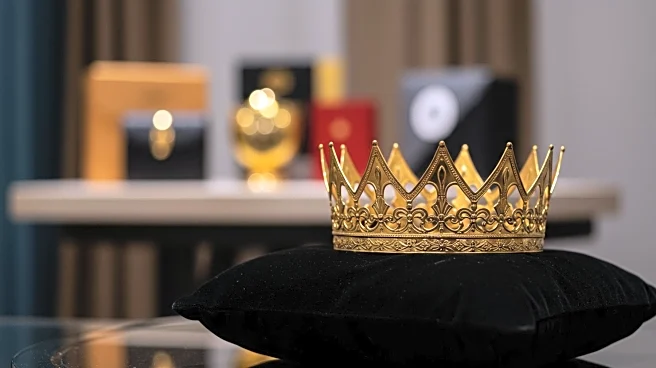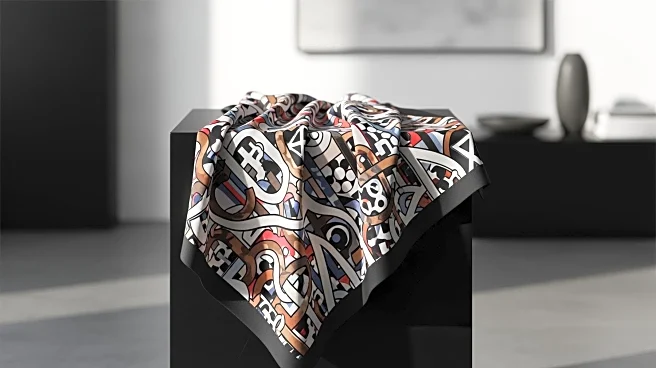What is the story about?
What's Happening?
The luxury goods market is experiencing a surge in fake and copycat products, driven by rising prices and consumer demand for affordable alternatives. The average price of luxury items in France has increased by 54% since 2019, creating an environment ripe for imitations. Lululemon has filed a lawsuit against Costco, accusing the retailer of copying its designs. The distinction between fakes and dupes is crucial, with fakes being counterfeits that mimic logos, while dupes offer similar designs without pretending to be the original. The rise of 'super-fakes,' which are nearly indistinguishable from genuine products, poses a significant challenge to luxury brands.
Why It's Important?
The proliferation of fake and copycat goods threatens the integrity and profitability of the luxury sector. Brands like Lululemon are under pressure to protect their intellectual property while balancing consumer relations. The legal complexities surrounding design rights in the U.S. add to the challenge, as brands seek ways to safeguard their unique designs. The issue also highlights broader concerns about supply chain integrity and ethical manufacturing practices, which are crucial for maintaining consumer trust. As luxury brands face competition from cheaper alternatives, they must innovate and reinforce their value proposition to retain market share.
What's Next?
Luxury brands are likely to intensify efforts to protect their intellectual property and enhance supply chain transparency. Legal battles, such as Lululemon's case against Costco, may set precedents for how design rights are handled in the U.S. The industry may also see increased scrutiny of manufacturing practices to ensure ethical standards are met. Brands could explore new strategies to differentiate themselves from imitators, such as emphasizing craftsmanship and exclusivity. The outcome of ongoing legal cases will be closely watched by stakeholders, potentially influencing future approaches to brand protection.
Beyond the Headlines
The rise of fake and copycat goods raises ethical questions about consumer behavior and the value placed on authenticity. It challenges luxury brands to reconsider their pricing strategies and explore ways to make their products more accessible without compromising quality. The trend also reflects broader societal shifts towards sustainability and cost-consciousness, as consumers seek alternatives that offer perceived value without the high price tag. The luxury sector must navigate these dynamics to maintain its allure and relevance in a changing market.
















